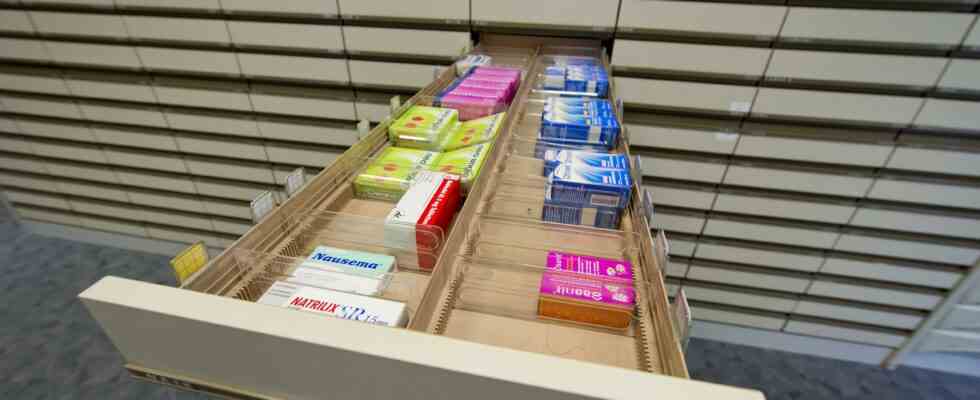Status: 12/16/2022 5:19 p.m
Doctors have been sounding the alarm for months: many drugs are not available due to supply bottlenecks. The traffic light coalition reacts with new plans. Production is to be relocated to Germany.
In view of delivery bottlenecks for important medicines, experts are now bringing state production of vital medicines into play in Germany. Christian Karagiannidis, member of the Government Commission for Hospital Care, said that after the shift to cheaper production locations in India and China, for example, in the past few decades, it is time for a rethink joint morning magazine from ARD and ZDF.
“We have to go the way now that we can bring the whole thing back. Perhaps we also have to discuss the fact that we need federal production facilities for vital medicines,” he said. You can also stock up. One problem, however, is that many medicines have a best-before date and cannot therefore be stored indefinitely.
Traffic light coalition plans legislative proposal
In order to defuse the situation, Health Minister Karl Lauterbach had announced that he would present a legislative proposal in the coming days to counteract supply chain problems. “Of course, it’s about enabling more manufacturers in Europe and Germany to produce these drugs again,” said Heike Baehrens, health policy spokeswoman for the SPD parliamentary group ARD-Lunch magazine.
The federal government also wants to change procurement law. The aim is to broaden supply chains in order to reduce dependency on individual manufacturers. The FDP health expert Christine Aschenberg-Dugnus said: “We have to bring the production of medicines back to Europe. There should be incentives for this.”
Lauterbach should bring the countries, manufacturers and wholesalers to one table for this, demanded the Union health expert Tino Sorge. Before the end of the year, one must agree on alternative procurement and distribution options. “Quick decisions are needed now,” said the CDU politician. The announcement of laws alone does not help children and their parents.
Shortages of emergency medication
Hospitals are now also warning of growing shortages of important medicines. The situation with antibiotics, cancer preparations and emergency medication for heart attacks and strokes is problematic, said the chairman of the German Hospital Society, Gerald Gass, to the newspapers of the Funke media group.
According to Gass, the greatest challenge is currently supply bottlenecks in emergency medicines. Among other things, the active ingredient alteplase, which is used as a life-saving measure after heart attacks and strokes, has been affected since April. Alternatives are rare or missing altogether, said the chairman.
In the current wave of respiratory diseases, however, a lack of funds such as the broad-spectrum antibiotic amoxicillin is also very problematic.
Christina Sartori, WDR science editors, on the current shortage of medicines
tagesschau24 4 p.m., 16.12.2022
Baehrens: Do not hoard medicines
Despite the tense situation, pharmacists and pharmaceutical wholesalers should only stock up for one week, emphasized the health policy spokeswoman for the SPD parliamentary group in Baehrens. “That is not justifiable in such a situation where these drugs basically have to be available nationwide.”
Approval comes from the health insurance companies (GKV). In addition, there must be more transparency about the availability of individual funds. “In the current situation, the pharmacies and their skills are required,” said the head of the National Association of Statutory Health Insurance Funds, Doris Pfeiffer. “We trust that in this emergency situation, the specialist staff will be at the patient’s side with advice and action.”
Pharmacies could, for example, also prepare fever juices themselves as part of a recipe and would be paid for this. Pfeiffer pleaded for companies to be required to report non-availability by pharmaceutical wholesalers and pharmacies.

